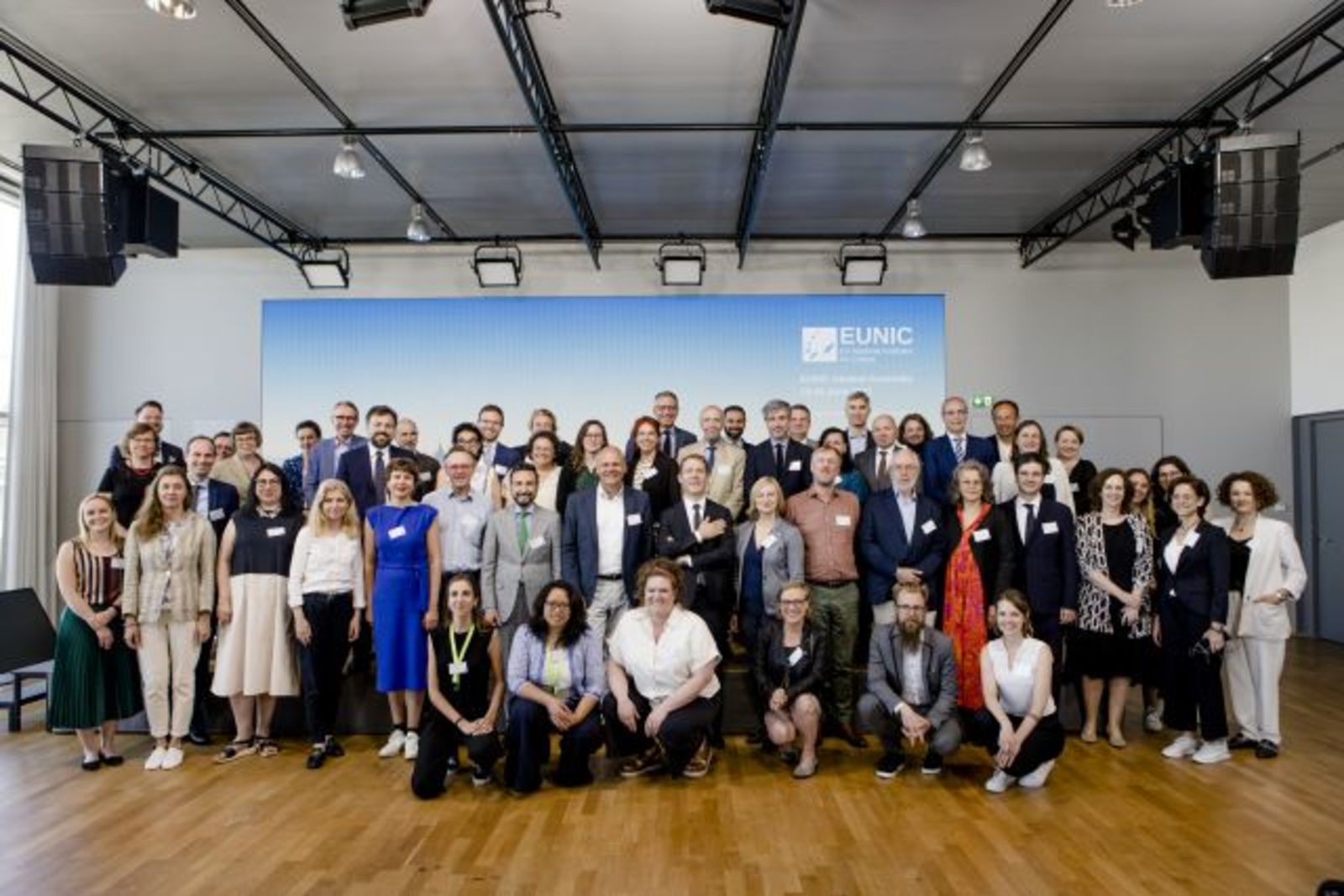The State Institute For Culture Under The Minister Of Foreign Affairs Took Part In The General Assembly Of Eunic Global In Munich
In the period 23-24 June 2022, representatives of the State Institute for Culture under the Minister of Foreign Affairs took part in the regular General Assembly of EUNIC Global (EU National Institutes for Culture), which was held in Munich, Germany. The EUNIC General Assembly is open to representatives of all members of the Association and is the governing body of EUNIC, which determines the strategy of the network of European governmental and non-governmental organizations dealing with international cultural relations. Together with its partners, the Association aims to intensify European cultural cooperation in more than 100 countries around the world with a network of clusters, drawing on the rich experience of its members from all EU Member States and Associated Countries.
The organization of the meeting was taken over by the Goethe Institute, whose headquarters are in Munich, and the reason for this was the transfer of the President's post of the Association by the current president - Mr. Guzman Palacios (AECID representative in EUNIC, Director of Cultural and Scientific Relations AECID in the Ministry of Foreign Affairs and Cooperation of Spain) to Mr. Johannes Ebert (Secretary General of the Goethe Institute). The EUNIC presidency is for one year. The meeting set several main goals on the agenda of the meeting: to revitalize EUNIC's focus on content-based work; to initiate cooperation on a joint EUNIC project on a topic of common interest; to discuss and decide on strategic changes in the governance of EUNIC; to inform EUNIC members about current activities and their strategic focus.
The General Assembly approved 3 new clusters in Barcelona (Spain), Kansai (Japan) and New Zealand, bringing the number of EUNIC clusters to 136 in 104 countries.
After a brief overview of the real and virtual meetings held over the last 6 months, made by Guzman Palacios and EUNIC Director Andrew Manning, the new President of the Association - Johannes Ebert - was welcomed. In his introductory remarks as President, Ebert touched on the need for administrative and strategic changes in the cluster network and highlighted the key role of the Association for the development of cultural diplomacy in Europe and globally.
Photos: ©Loredana La Rocca


